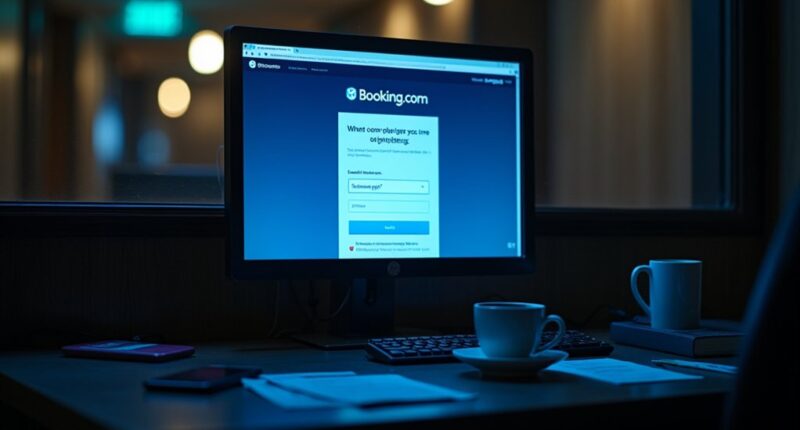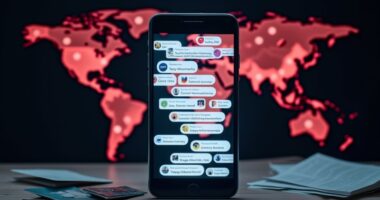While hotels focus on providing comfort and hospitality, cybercriminals are checking in with sophisticated phishing schemes that threaten the entire industry. A recent campaign impersonating Booking.com has security experts worried. Hackers are sending convincing emails to hotel staff, complete with the company’s branding and tone. Pretty clever. And pretty dangerous.
The statistics paint a grim picture. Seventy percent of hotels experienced at least one cyberattack last year. That’s not a typo. Seventy percent. The average cost of a data breach in hospitality? A whopping $3.36 million. Small businesses fare even worse—60% close within six months of a breach. Good luck bouncing back from that.
The hospitality industry’s security nightmare has a price tag: $3.36 million per breach, with small hotels facing extinction after attacks.
These attacks aren’t random. They’re calculated. Cybercriminals target guest personal information, credit card details, loyalty program accounts, and employee credentials. The hospitality industry is a data goldmine. Hackers know it.
Remember the Marriott breach in 2020? 5.2 million guests affected. IHG’s systems got hammered in 2022. MGM Resorts lost $100 million in a 2023 cyber incident. The list goes on.
Hotels are particularly vulnerable for obvious reasons. High employee turnover means inconsistent security practices. Outdated systems, unsecured WiFi networks, third-party vendor access—it’s a security nightmare wrapped in luxury bedding. Online booking platforms introduce additional vulnerability when third-party services lack robust security measures. Implementing employee training could significantly reduce these risks, as social engineering remains cybercriminals’ preferred method of attack.
Most attacks exploit human error. Fake reservation confirmations. Spoofed emails from management. Malicious attachments disguised as invoices. One click and the damage is done.
The regulatory consequences add another layer of pain. PCI DSS requirements, GDPR, CCPA—the alphabet soup of compliance gets expensive when you’re caught unprepared.
The recent Booking.com campaign shows how sophisticated these attacks have become. Hackers impersonate trusted platforms and exploit the hospitality industry’s customer-first mentality. The 2024 300% surge in social engineering attacks targeting the hospitality sector underscores the escalating threat landscape. The same quality service approach that makes hotels successful makes them targets.
The threat continues to evolve. Hotels need to adapt. Fast. Because while guests are checking out, hackers are always checking in.









